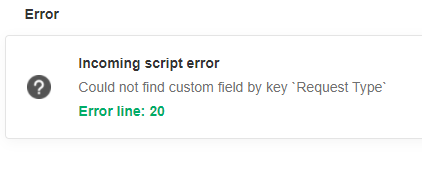Note
We've packed up and moved from Confluence to Discourse to bring you a better, more interactive space. Out of courtesy we didn't migrate your user account so - you will have to signup again
The Exalate team will be on holiday for the coming days - returning Jan 4
Enjoy & stay safe


We are using an exalate plugin to sync records between cloud instance and server instance of Jira Service Desk. facing issue in syncing request type custom field ( customer request type in server). guide us with the steps to follow